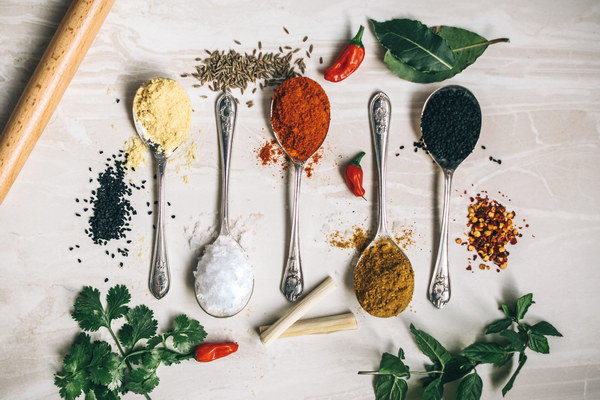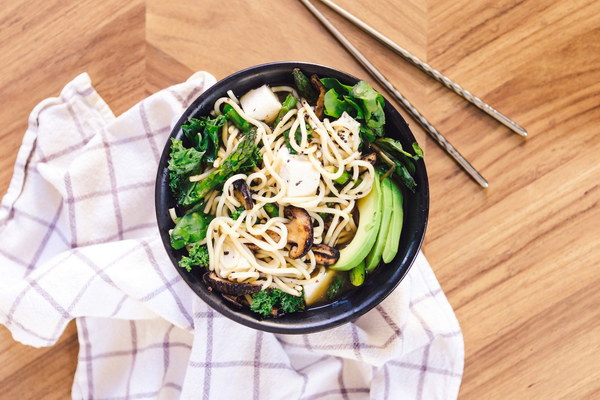Harmonizing Your Body's Constitution A Guide to Balancing Damp-Heat in TCM
In Traditional Chinese Medicine (TCM), damp-heat is a common imbalance that can lead to various health issues. Individuals with a damp-heat constitution often experience symptoms such as fatigue, irritability, acne, and digestive problems. This article aims to provide a comprehensive guide on how to balance damp-heat in your body, helping you achieve a healthier, more balanced lifestyle.
Understanding Damp-Heat
Damp-heat is the result of a combination of internal and external factors, such as an overindulgence in spicy, greasy, or cold foods, stress, and exposure to damp environments. This imbalance is characterized by an accumulation of dampness and heat in the body, which can affect various organ systems.
Symptoms of Damp-Heat
Common symptoms of damp-heat include:
1. Fatigue and weakness
2. Irritability and mood swings
3. Acne, eczema, and skin rashes
4. Digestive issues, such as bloating, constipation, and diarrhea
5. Body odor and bad breath
6. Excessive sweating
7. Menstrual irregularities in women
Balancing Damp-Heat: Lifestyle Adjustments
1. Diet: A balanced diet is crucial for balancing damp-heat. Avoid spicy, greasy, and cold foods, as well as alcohol and sugary drinks. Instead, focus on a diet rich in fresh, whole foods, including:
- Vegetables: Leafy greens, cucumbers, and bitter melon
- Fruits: Watermelon, papaya, and kiwi
- Grains: Brown rice, quinoa, and millet
- Proteins: Lean meats, poultry, fish, and tofu
- Herbs and spices: Ginger, turmeric, and cinnamon
2. Exercise: Regular physical activity helps to promote the circulation of Qi (vital energy) and eliminate dampness. Engage in activities such as walking, jogging, yoga, or tai chi.

3. Sleep: Ensure you get enough quality sleep to help your body recover and balance its internal systems. Aim for 7-9 hours of sleep per night.
4. Stress management: Stress can exacerbate damp-heat symptoms. Practice stress-reduction techniques such as meditation, deep breathing exercises, or engaging in hobbies you enjoy.
5. Acupuncture and herbal medicine: TCM treatments like acupuncture and herbal medicine can help balance damp-heat by addressing the root cause of the imbalance. Consult a licensed TCM practitioner to develop a personalized treatment plan.
Balancing Damp-Heat: Herbs and Supplements
Certain herbs and supplements can help alleviate damp-heat symptoms and promote overall health. Some of these include:
1. Bupleurum (Chai Hu): Helps to clear heat and promote the movement of Qi.
2. Astragalus (Huang Qi): Boosts the immune system and supports energy.
3. Scutellaria (Huang Qin): Clears heat and relieves inflammation.
4. Cinnamon (Rou Gui): Warms the body and promotes blood circulation.
5. Green tea: Rich in antioxidants, green tea can help to reduce inflammation and promote digestion.
Conclusion
Balancing damp-heat in your body requires a holistic approach that addresses lifestyle, diet, and treatment options. By making these adjustments, you can improve your overall health and well-being, and reduce the symptoms associated with damp-heat. Remember to consult with a healthcare professional before making any significant changes to your diet or lifestyle.









